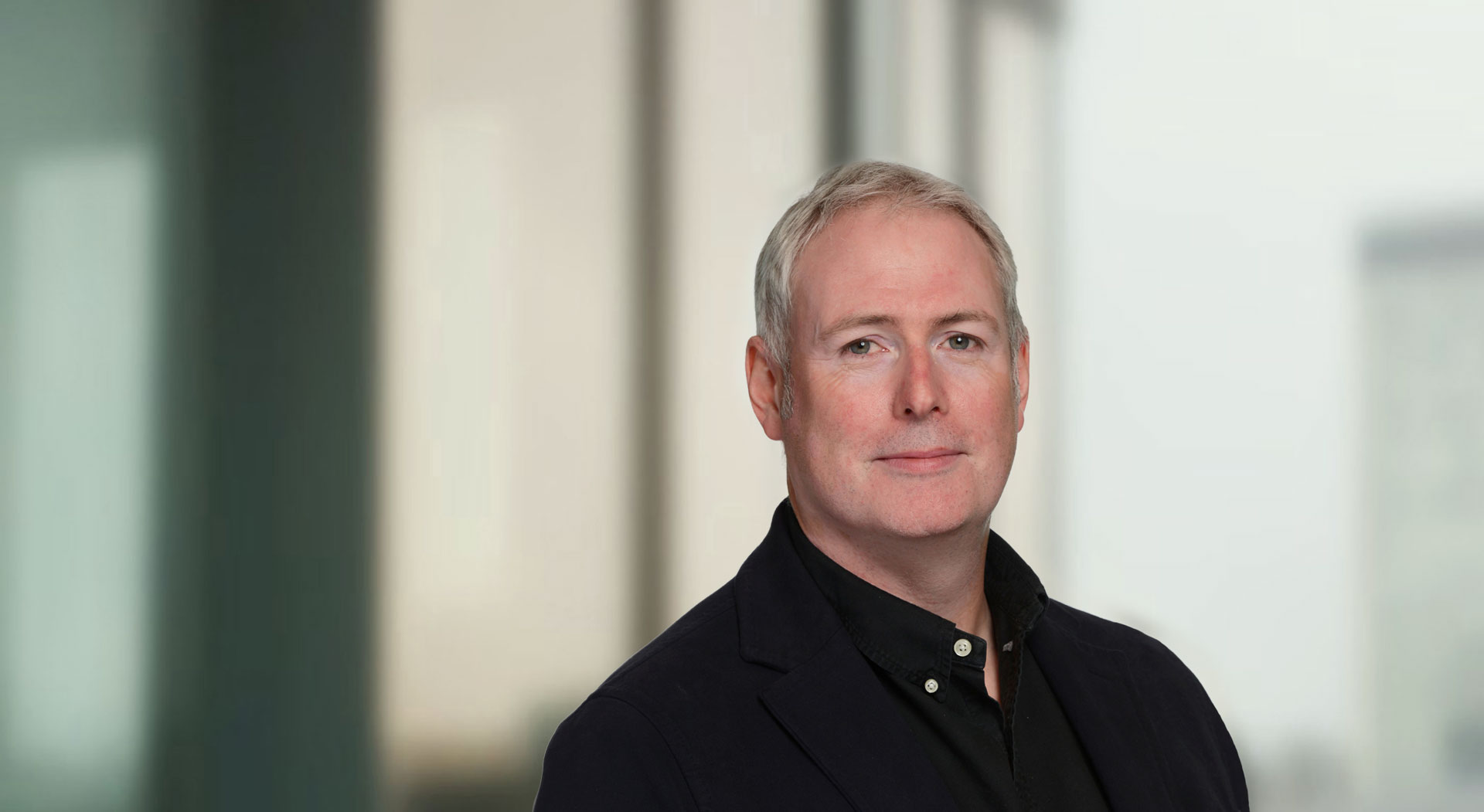As Chief Operating Officer at CPP Investments, Jon Webster is on the front lines of the technological change reshaping global investing. In the latest episode of the Technovation podcast with Peter High, he reflects on the importance of connecting technology to value creation, the “heart of data security”, and how generative AI will reconfigure work.
**The following has been edited for clarity and brevity.
Peter High: The past year has coincided with remarkable change in the ability to process data, with further advances in artificial intelligence, generative artificial intelligence, and the like. How has this impacted the work your team is doing?
Jon Webster: One of the foundational things we’ve done is to make sure we can connect technology, frankly, to value. While data is really important, that’s not the only thing that goes into the mix in terms of creating value. So one of the shifts we’ve been making is to connect technology to the product owners and the teams that can create value with it.
Once you’re connecting people to the technology that they can do something valuable with, and you’ve got a modular, responsive, nimble architecture, then you can start to pull data from different systems, different platforms, liberate the data and start to do, I think, interesting value creation things with it.
Generative AI has been a real step change in that ability to democratize technology over the last 12 months. I’m actually very bullish on it. I think generative AI large language models unlock capabilities that allow us to change the nature of our interactions, the nature of how we interact with intelligence. We’ve already got very broad access to generative AI capabilities across the organization and have very targeted select value creation opportunities including in investment strategy.
Peter High: Talk a bit about how you organize your team, and how that team, a global one, collaborates in a way that makes it effective.
Jon Webster: I think there’s two parts to being effective in a global organization with technology. You need to focus on capabilities that can be leveraged enterprise-wide. Having enterprise-wide CRM systems, pipeline systems, making sure we’re understanding all the interactions around our partners and how deals move through their life cycles. That consistent, integrated view, I think is really important.
But in a global organization, you also really need to connect technology, frankly, to the everyday user. If you sit and only think about the enterprise capabilities, you miss real opportunities to connect people to everyday value-creation opportunities.
Peter High: Clearly, by being global, and being able to sit with the intended users of the technology, you gain special insights as to their uses. What are some of the things that you are learning from those deeper collaborations?
Jon Webster: Generative AI is a really good example. We’ve made a deliberate decision to start with a very hands-on experience in one of our global offices, to really concentrate on getting every user two or three hours of hands-on facilitated experience with tools like Microsoft Copilot and our own internal GPT-4 based platforms.
What we’re finding with generative AI, at the moment, is it can do some stuff. Then maybe it lets you down on some stuff, and then maybe it exceeds your expectations on some other things. We’re finding that colleagues who really stick with using generative AI-based tools need to pass a two or three-hour bar of immersive usage with it before they get comfortable to say, “Actually, I’m fine to discover what works and what doesn’t work.”
When we’ve seen colleagues engage for 25, 30 minutes and it doesn’t quite meet their needs, it’s a little bit disappointing off the bat. There’s a danger of giving up on generative AI. Actually, we’re big fans of Ethan Mollick here. If you’re familiar with Ethan Mollick, who talks a lot about generative AI on his podcast, he says you need 10 hours with a GPT-4 class model before you really start to believe that generative AI can do something for you.
Peter High: I wonder if you could talk a little bit about the way in which you manage security given the remarkable amount of data that flows through your systems?
Jon Webster: I think the heart of good security is getting people to take it seriously. We’re very fortunate that we’ve really been able to get our product teams, our product managers to take a whole product perspective. That is, not just think about new features, but the resilience of the platforms they’re building, the data that’s within them, the entitlements of that data, how that data is made consumable, accessible across the organization.
The second piece, which is really important to us, and frankly, is a real advantage, is we’re largely software defined. We made the move to the cloud in 2019 and we have very little on-premise left. Of course, we have SaaS solutions, but the majority of our built software is all built on public cloud. Being software-defined allows us to be very effective in our secure by design principles. We’re able to embed security checking, vulnerability checking, vulnerability scanning with our pipelines to make sure that our software development is sound and secure from the outset.
The third piece, which is super important, is to just have that in a much broader context, where you’re thinking about the full life cycle of security.
Now we’re fortunate that we’ve got deep intelligence expertise within the organization. Everything from our threat intelligence, how we think about the world, the threats we need to consider, all the way through to the expertise in our security operations. In all of that software development, that whole-product thinking, security is the first thing embedded. Now, you can never take anything for granted with security, so you’ve got to continue to up your game. The world gets more complicated. Threat actors get more ambitious, so we don’t take anything for granted.
Peter High: We’ve certainly talked about important trends, perhaps chief among those, artificial intelligence and Gen AI. Any other trends as you look to the future that have you particularly excited, Jon?
Jon Webster: Actually, I’m genuinely very excited by generative AI. I know we’ve talked about it already, but I do think the possibilities of growing very different technology experiences with generative AI are starting to appear. One of the thought experiments I do with the team here, and we’re going to hopefully start some work on this soon, is to confine yourself to ChatGPT 4, confine yourself to only using AI agents. How would you change the way you do your work today?
I think that’s a fascinating experiment that almost every organization can run in almost in every part of the work that they do. I really do see work reconfiguring. When I look at what we do in most organizations, a lot of the structure we have is driven from two things. One is trying to bring people together at a point in time to collaborate. You need to bring tax expertise in, investment expertise in, legal expertise in. A lot of the structure is about choreographing, getting all that expertise together at the same point in time. Then the other part of that structure is about evidence and control, that you’ve made some meaningful step along the way.
A lot of our structure is just to facilitate great conversations. Why I’m so excited about generative AI is, I think it just gives us a different way of doing that. I love the idea of just starting to grow new and different experiences of interacting with intelligence.
Listen to the full podcast or watch the video:
Website: https://bit.ly/Technovation-867
YouTube: https://bit.ly/YouTube-867
Podcast Platforms: https://link.chtbl.com/Technovation-867
How investors are navigating the AI era
Generative artificial intelligence (genAI) is transforming the world of investing.
Faster, smarter, more powerful: Five AI trends every investor should understand
Artificial intelligence (AI) has been advancing rapidly for more than 60 years, though for most of that time, it’s largely operated
Investing in the age of artificial intelligence
Chris Gillam, Director, Operational Risk and Nadeem Janmohamed, Managing Director, Active Equities, share their views.







